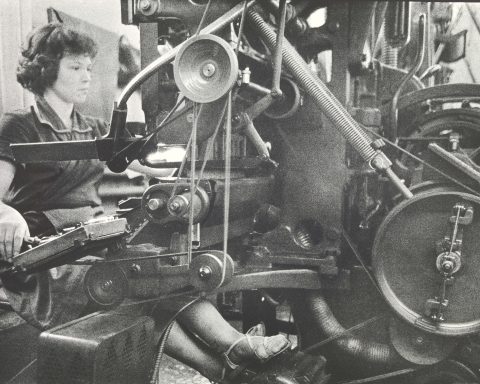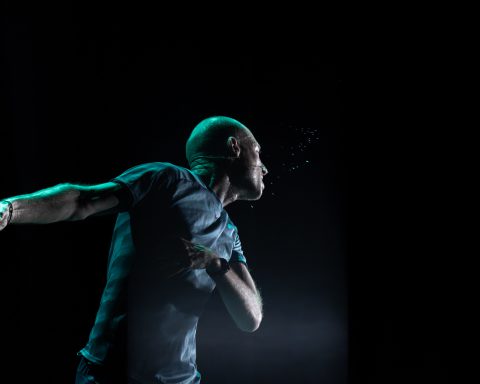Getting your first tattoo can be a daunting experience for anyone. In a few simple steps I try to distill my own experiences with getting tattooed in Leipzig and Berlin to offer tips and advice to first-time tattoo goers.
I got my own first tattoo pretty late, at the age of 28. I now have over 15 and counting. I’ve been lucky over the years to have had great experiences getting tattooed in Leipzig; but I count this all down to good planning and execution.
Choosing the right artist – What style do you want?
When choosing an artist for your first tattoo, their preferred style and experience in tattooing is essential. Think about what style of art you want on your body. Some classic tattoo styles include: Blackwork, Black & Grey, Single Needle, Portraiture/Realism, Japanese Traditional, American Traditional, Tribal tattoos and many more.
Most artists will be fluent in one or more styles but a big consideration is if you want a tattoo with or without many colours. Most Blackwork and Black & Grey tattoo artists will refuse your design if it is too colourful, for example.
Try to do as much research on exactly what you want. Apps like Instagram & Pinterest are great tools to do research and get inspired. Instagram in particular is where artists can showcase their work fully and some artists also accept DM’s (see below).

Um… did they get my e-mail? – Making your appointment
Normally you can make contact via e-mail or social media. Some artists only accept emails and won’t read DM’s or Facebook messages, so make sure you check that before getting frustrated. Many artists today live a somewhat nomadic lifestyle. As freelancers they often travel to other countries, cities and tattoo conventions. So don’t worry if your preferred artist doesn’t respond right away. Tattooing is their job, and if they are any good they have a busy schedule full of clients. If you want a faster response, include the following information:
- Motif/idea: include 3-5 reference pictures or your own sketch/design
- Placement: where on your body do you want to get tattooed?
- Size: try give an idea of the width/height in cm
- Dates/times you are available
The artist will respond with some feedback on your motif, placement and the date. Whatever your chosen artist says I would trust you to follow them. If they tell you your idea is too complicated or the placement is awkward, trust them, they know better than you. I’ve had several designs and placement suggestions rejected for good reasons. Most people tend to overcomplicate tattoos, myself included.
My first tattoo went great. My second tattoo: not so great. I sent my artist so many ideas to “merge” into one that we both got frustrated. I think simple is always better, even if it’s a full Japanese bodysuit. Even if you wanted to be covered head-to-toe in that style, be clear about what kind of Japanese motifs you like. For example, do you want: water, clouds, Koi fish, blossoms, geisha, samurai or an element of each? It can take time to get the right design, but give honest feedback to your artist. They want to help you have a good tattoo.

That sounds like a lot of planning, can’t I just be spontaneous? – Walk-ins and “flash”
Yes you can, within reason. If your design is simple and small enough to do without much planning. Try to measure tattoos in the number of hours it takes to get one. If an artist tells you your design can be inked in an hour or so, then a walk-in studio is a good idea for you. Walk-in studios are exactly that: You walk in with your own drawing or picture and ask if an artist has time for you that day. Alternatively, most studios have books of what are called “flash” designs. These are drawings that an artist has already made and which are available. Artists also keep their old designs and pictures of healed tattoos in these books, so they are a cool way to choose something or get an idea what you want.
Um… it bloody costs what?! – Why are tattoos so expensive?
Please remember that your favourite tattoo artist has spent many years going to art school, realising they hate art school, dropping out of art school and honing their drawing skills alone before they ever tattooed anybody. Tattoo artistry is a skill like any other and requires many hours of patience and dedication to become good at.
All tattoo artists work freelance, which means they have at least the following costs to cover themselves: rent for their apartment, rent for their atelier or studio space, health insurance, German pension insurance, travel costs to and from other cities where they guest, food (so they are not grumpy when they tattoo you/stay alive).
On the day of your tattoo:
I once watched my friend lie on the sofa in his (unheated/unrenovated) Eisenbahnstraße apartment, smoke a joint and get tattooed by his mate from Dessau. I thought that was pretty bad ass. However, my own experiences have been much more tame and professional. Most artists today work in studios or in private ateliers. These studios and ateliers are required by law to be hygienic or they can lose their license and get heavily fined. This is why they change their gloves and needles so often when tattooing. Don’t stress; it’s part of the hygiene protocol.
Do:
- shower!
- wear loose, comfortable clothing.
- bring a snack! Something small and water.
Don’t:
- get high or drunk. Alcohol and some drugs thin your blood, which can prevent the skin from properly absorbing the tattoo ink.
- forget to bring cash! unless your artist has agreed to accept PayPal or bank transfer (not everybody does!).
- forget to eat something substantial before you arrive. Tattoos are stressful on the body. I forgot to eat once before a long session and I felt super tired because the body expends a lot of energy during the tattoo process.
Ok… but how much does it hurt?
I have consistently been impressed by my body each time I get tattooed. The first ten or fifteen minutes feels a bit like kitten claws scratching you. But after that my adrenaline always kicks in and I feel very little, numb pain. Of course this depends on where on your body you get tattooed. Softer, paler skin is usually more painful. Ribs are much more painful than on the forearms, for example. And, of course, each person has an individual pain tolerance. But generally remember to just breathe and try to relax. Once I had an eight-hour session on my arm and I fell asleep halfway for a bit, so it varies!

Aftercare: “If you don’t care, you will get scared!”
Tattoos take up to a month to heal properly and there are various stages. Once completed, your artist will clean the tattoo very intensively with liquid anti-bacterial soap (this might sting a bit – sorry!). It’s important to remember that at this point you’re actually mildly wounded. Your skin has dozens of tiny holes in it and is exposed to the elements without proper care.
Badly cared for tattoos could become infected and this sucks and requires medical attention. Luckily this can be avoided very simply! Normally your tattoo will be wrapped up in some way. Leave this covering on for three days and do not take any baths; try to shower on medium/cool temperature. Try to keep the covering as dry as possible and after three days remove it and do the following everyday for about two to four weeks:
- Gently rinse the tattoo with fragrance-free soap.
- Pat it dry. Be gentle. New tattoos need to be kept dry.
- Apply a tattoo aftercare balm or a similar fragrance-free moisture cream.
This means that each day you prevent the possibility of infection while giving the skin moisture to rejuvenate and absorb ink. Even DM has a line of tattoo aftercare balm which I personally use after getting a new tattoo. Lastly, don’t ever scratch or pick at your new tattoos no matter how itchy.
In conclusion, Leipzig is a city with many great artists working in a variety of styles. Although I prefer Blackwork tattoos, Leipzig has a style to satisfy everybody. Even if your favourite artist isn’t local, they still might travel and guest here in the future. So get searching!


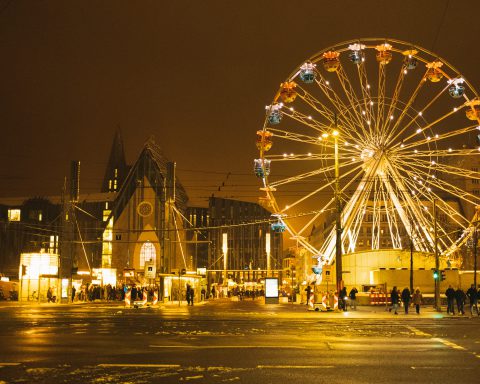
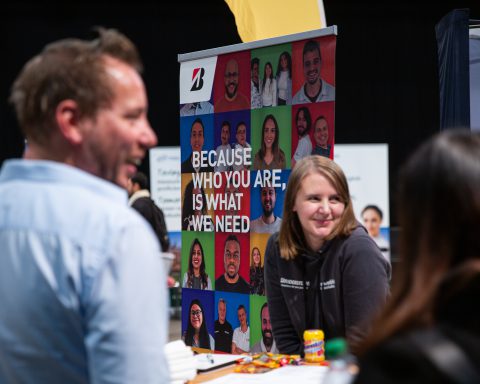
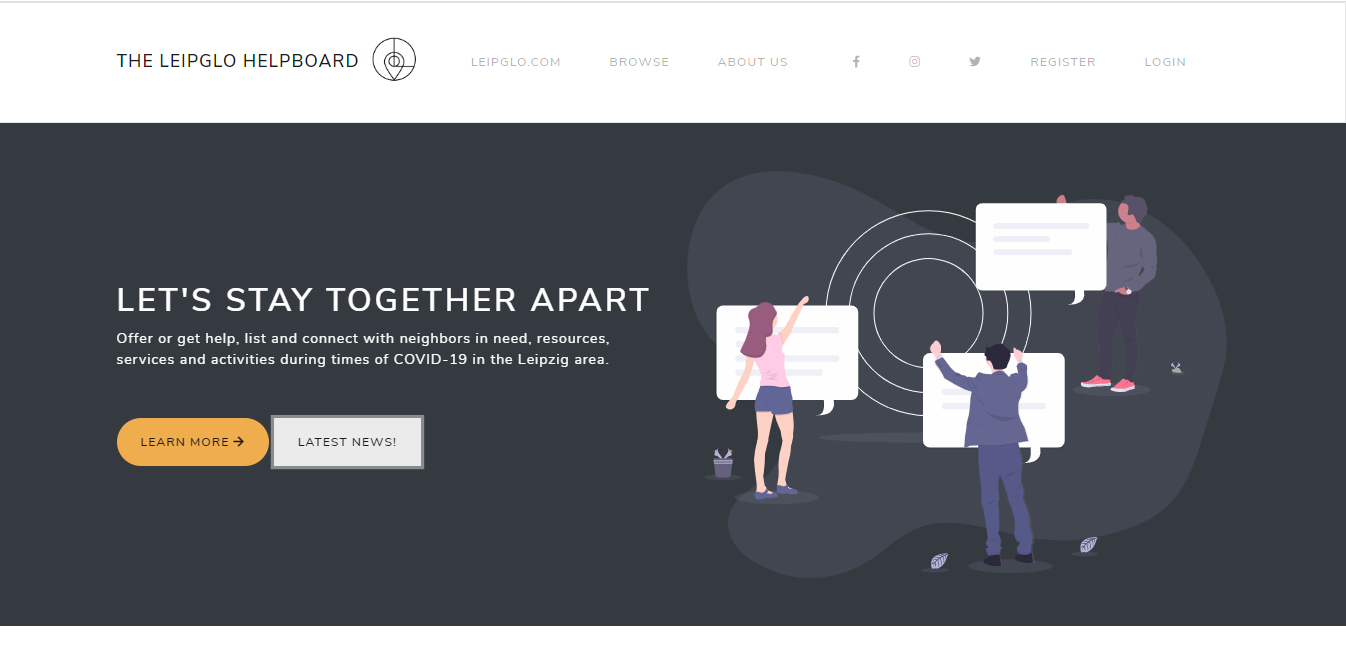


![Wine & Paint event on 9 Nov. 2024 at Felix Restaurant, Leipzig. Photo: Florian Reime (@reime.visuals] / Wine & Paint Leipzig](https://leipglo.com/wp-content/uploads/2024/12/pixelcut-export-e1733056018933-480x384.jpeg)
